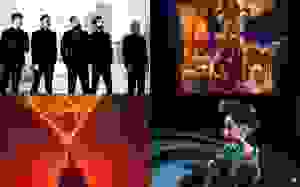Ageing Memory
For the human brain, there is no such thing as over the hill. Psychologists researching the normal changes of ageing have found that although some aspects of memory and processing change as people get older, simple behaviour changes can help people stay sharp for as long as possible.
Although researchers are still piecing together what happens in a healthy ageing brain, they can explain some typical changes. Noted cognitive psychologists such as Fergus Craik, PhD, and Timothy Salthouse, PhD, have been investigating what happens and compiling the results, as well as trying to improve the methodology of this growing field of research.
To understand what happens on the outside, it is important to know what happens on the inside. The brain’s volume peaks in the early 20s and gradually declines for the rest of life. In the 40s, when many people start to notice subtle changes in their ability to remember new names or do more than one thing at a time, the cortex starts to shrink. Other key areas also show modest changes. Neurons (nerve cells) can shrink or atrophy and there is a large reduction in the extensiveness of connections among neurons (dendritic loss). The normally ageing brain has lower blood flow and gets less efficient at recruiting different areas into operations.
As the brain changes, so does behaviour. And so, given that blood flow drops the most in the frontal cortex, people most commonly experience declines in verbal fluency or the ability to find the words they want. They also have to work harder at “executive function” planning and organizing their activities. The areas most affected after that include the parietal cortex which affects construction and visuomotor performance (practice that golf swing!), and the medial temporal area which affects the ability to make new long-term memories and think flexibly.
Using neuroimaging and increasingly sensitive psychological tests, researchers have refuted the model that people, as they get older, go into a general mental decline. Instead, psychologists are developing a model of specific deficits that show very different rates of decline and also vary widely among individuals. They also suspect that middle-aged sensitivities about memory loss may be exacerbated by comparisons with one’s youthful performance. It may be more realistic to compare one’s performance to healthy age-matched peers instead.
Psychologists are building evidence for a consistent pattern of change. Episodic (what did I have for breakfast?), source (where did I learn about that new car?), and flashbulb (where were you on April 1, 2022?) memory decline the most. Semantic (words, facts and concepts) and procedural (“it is like riding a bicycle – you never forget”) memory decline the least. Storage capacity is not the issue; the brain is not an overloaded hard drive. Rather, the changes appear to come in how people encode and retrieve information. Interference, such as distraction, blocks encoding more and slower processing may hurt retrieval, such as being able to remember names and dates. Still, even with these subtle changes, most older adults still seem to efficiently acquire new information and park it in long-term memory. And implicit learning – learning without conscious effort – seems to more or less be spared into old age.
Can anything be done for older adults who start showing signs of memory problems? New evidence on what can be done to keep older minds fit is demonstrated in psychologist Michael Marsiske’s research. Challenging oneself by learning a new language or playing a new musical instrument may be a solution to preventing memory problems or the development of dementia or Alzheimer’s. From a study called Advanced Cognitive Training for Independent and Vital Elderly (ACTIVE), which Marsiske co-directed with other psychologists (Karlene Ball, George Rebok, Sherry Willis) and non-psychologists and with funding from the National Institute on Ageing and the National Institute of Nursing Research, Marsiske and colleagues found that short mental workouts improved performance and was sustained even five years later. In the study, approximately 2,800 volunteers were assigned to one of three training conditions (trained participants received instruction in one of three different kinds of thinking skills: memorizing lists, reasoning [looking for patterns in strings of numbers or letters] and visual concentration.) and a condition where no training occurred.
All trained participants received a baseline of ten hours of instruction. Half of the trained participants received an extra eight hours of “booster” training. Five years later, compared to untrained controls, the participants in each training group still showed a significant performance advantage on learned thinking skills. Furthermore, participants receiving booster training showed even more significant benefit in the areas of reasoning and visual concentration. In addition, there was evidence that training “transferred” to real world skills. Participants in all three groups reported fewer limitations in performing tasks of daily living than the participants in the no training group. The participants in the reasoning-trained group showed the most improvement. And, in the area of visual concentration, participants who received eighteen hours of training (booster training group) were compared with those who received the basic ten hours of training, blind observers found that booster participants were significantly quicker at everyday activities, including accurately reading instructions on medicine bottles, finding items in a pantry or reacting to road signs on a computer.
As usual, we remind you to take your Memo Plus Gold daily. It will help to keep you alert and mentally sharp. For more information or to order for Memo Plus Gold, please visit : https://oze.my
Artikel ini hanyalah simpanan cache dari url asal penulis yang berkebarangkalian sudah terlalu lama atau sudah dibuang :
http://malaysiansmustknowthetruth.blogspot.com/2025/02/ageing-memory.html
 PING BABAB : Raksasa Aggregator Malaysia
PING BABAB : Raksasa Aggregator Malaysia


















